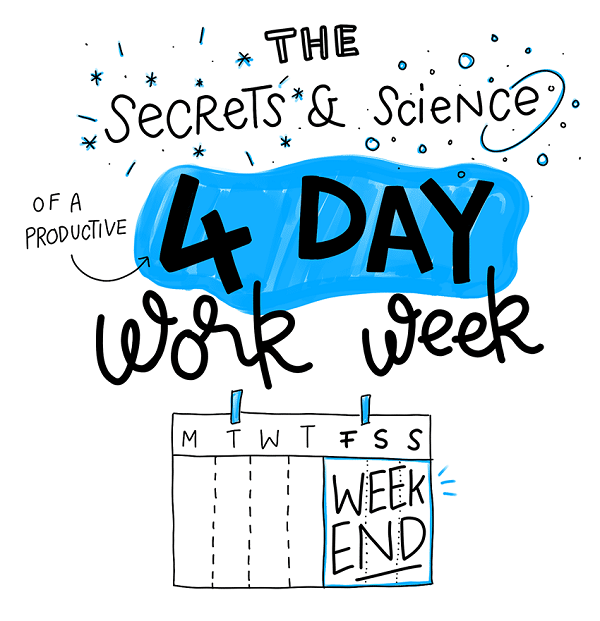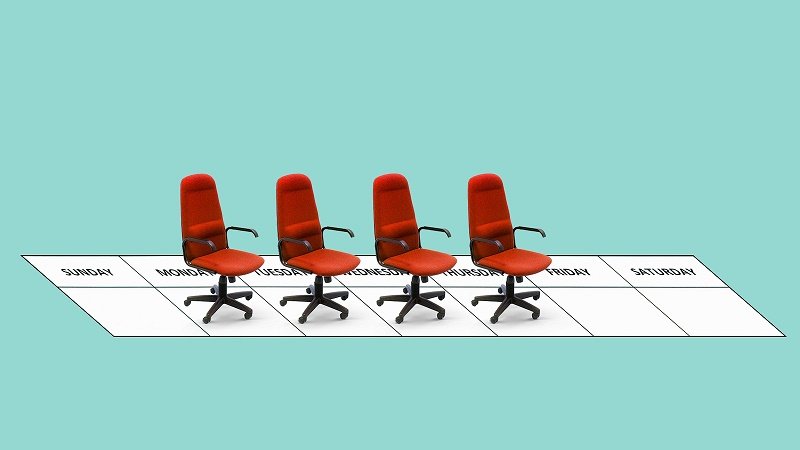Does The Dream Of Working Four Days A Week Come True?
Shorten The Work Week, The 4-Day Work Week, and These Are Ideas That Are Decades Old. Over The Past Few Years, Testing This Method Has Intensified In Different Countries.
But will we soon see employees working only four days a week, or is it still a dream for them?
” The short work week, which was a trend for a short time, has now become a way of life.” It is what the New York Times reported, but it’s 1971.
If you look in the Times archive, you can find thousands of articles from the past decades, focusing on the high value of a four-day workday. Most of them start with the phrase: ” The four-day workweek is rapidly becoming more trendy.” The headline of some of them is: ” Four days a week is a time that is needed.”
It’s been almost five decades since then, and the idea of a four-day workweek is still what it should be: more. Aside from the service jobs that are often in demand, such as manufacturing and nursing factories and the small number of startups, the shortened week is an engaging experience for many American workers. (Of course, it’s not wrong to know that this method has worked well in Iceland.)

Shane Hickenlooper, CEO of Scroll, a 15-person marketing company that follows the practice, says the company has seen mental health improvements and profitability since a four-day trial week.
On the other hand, the Kickstarter fundraising site is scheduled to experience a four-day-a-week work system for 90 employees (2022). It is a call for larger companies to take the idea more seriously.
Hybrid work can bring more flexibility to the average employee of a company. Jackie Reinberg, chief executive of Willis Towers Watson Consulting, adds that a four-day workweek can be the same until companies decide to be more creative in balancing many of their priorities. Remain an American fantasy.
Four days – other countries.
Even two years ago, it reported that one country was seeing promising results from a four-day-a-week test, both in the public and private sectors.
Earlier this spring, much attention pays to the Spanish government. In 2017, a Swedish pension center was at the top of the news. In December, the information was about Unilever New Zealand, and before that, tested the same method was in Microsoft’s representative office in Japan.
This week, the debate over four days a week with the trials that began in Iceland resurfaced.
This experiment, which includes 2,500 people, reported no decrease in efficiency and productivity among different groups, from various occupations to industries. On the other hand, we also saw an improvement in employees’ health.
In addition, researchers report that several companies have begun negotiations with their respective unions to make the idea of a shortened workweek permanent. As of now, 86% of Iceland’s working population is moving to lower working hours.
The solution to the American “logistics nightmare.”
When Reinberg, chief executive of Willis Towers Watson, says the “cultural problem” has two meanings. The first refers to cultural differences between Europe and the United States, such as the lesser power of unions. The second is American organizational culture.
Flexibility requires trust. In many companies, the emphasis is on employee presence alongside efficiency. But to make the idea of working four days a week possible, employers need to pay more attention to results than to perspective.
“The point is to have logistics flexibility to meet the customer’s needs or any product or service it offers. And if they can find a way to do that, they have the golden ticket,” Reinberg said.
It is why areas such as healthcare and the manufacturing sector use alternative working hours to be open 24/7. Employees may work shifts of three to 12 hours per week or split 80 hours over nine days, taking into account Fridays.
“But working behind the usual desk from 9 a.m. to 5 p.m., Reinberg says, requires more creativity and intelligence among employers to solve the ‘logistical nightmare’ problem of scheduling people, customers, and salespeople, ” Reinberg said. “It kept me happy on the holidays, and at the same time, it had an eye on revenue and profitability.”
But he does not forgive employers. With the spread of the Coronavirus, the competition for new talent has intensified, necessitating the need for flexibility to keep employees efficient. It is now up to employers to free up the efficiency and productivity of individuals by providing different conditions, and this can include ideas such as four working days a week that are decades old.
“Do I think we can get there? I do not think we have any other choice,” he said.

